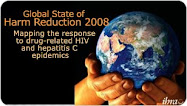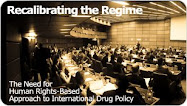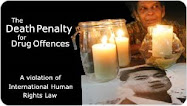 The International Harm Reduction Association has welcomed today's statement by UNODC Executive Director, Antonio Maria Costa, calling for an end to capital punishment for drug offences, and a greater focus on human rights in drug enforcement activities.
The International Harm Reduction Association has welcomed today's statement by UNODC Executive Director, Antonio Maria Costa, calling for an end to capital punishment for drug offences, and a greater focus on human rights in drug enforcement activities.
Speaking this morning at the opening session of the 51st Commission on Narcotic Drugs (CND) meeting in Vienna, Mr. Costa said:
"Finally, but certainly not least, human rights. Our work is guided first and foremost by the UN Charter that commits signatories to fundamental freedoms, and by the Universal Declaration of Human Rights, 60 years old this year.
In Article 25 of the Universal Declaration, health is listed as a basic human right. As we emphasize the health aspects of drug control, it stands to reason that implementation of the drug Conventions must proceed with due regard to human rights. Thus far, there has been little attention paid to this aspect of our work. This definitely needs to be amended.
Although drugs kill, I don't believe we need to kill because of drugs.
The UN drug Conventions have left it to individual states to deal with health care and crime retribution, in relation with specific cultural and judicial contexts. Mindful of this, today I propose that Member States extend the concept of harm reduction to include the need to give serious consideration to whether the imposition if capital punishment for drug-related crimes is a best practice.
The recent General Assembly moratorium suggests a way forward. More must be done to bridge the gap between international standards and the right of individual nations to decide in this difficult area. As the custodian of the judicial standards and norms set by the World Crime Congresses, UNODC insists on the importance of translating them into national laws and practice."
IHRA's HR2 programme has been doing extensive work on the issue of the death penalty for drugs over the past year, including publishing a major report in December and meeting with Mr. Costa in Vienna in February. Later today, IHRA's Senior Policy Advisor, Rick Lines, will be speaking on the death penalty for drugs at a CND luncheon briefing session on human rights organised by NGOs.
Monday, 10 March 2008
CND day 1 - UNODC chief calls for end to the death penalty for drug offences and a greater focus on human rights
Labels: death penalty, human rights, human rights law, United Nations
Subscribe to: Post Comments (Atom)







1 comments:
Congratulations to all at IHRA and Human Rights Watch for the excellent wotk on the death penalty report and the behind the scenes work at the UN and UNODC. The change in tone from the UNODC on this important issue is a major and very welcome step forward in addressing one of the most appalling manifestations of modern drug control policy.
I hope the UN move to make all drug related aid to individual states conditional on a moratorium that the death penalty will not be used for drug offenses and international human rights law will be adhered to in all respects of drug enforcement and policy more generally.
Post a Comment